V.H.P (UK) will hold a meeting to discuss the Government’s long-awaited Public consultation on the Caste Clause.
DATE: Sunday 14th May 2017
TIME: 5.00 to 7.00 pm
VENUE: VHP Shiva ji Hall, 55 Albert Road, Ilford IG1 IHJ
The Consultation was announced on 28th March and ends on 17 July 2017. It is most important for everyone, every organisation including Schools, and every business to fill in the form and participate in the Consultation.
https://www.gov.uk/government/consultations/caste-in-great-britain-and-equality-law-a-public-consulation
All major Hindu organisations have come together to find a way forward to understand and issue guidance to respond and fill in the Consultation form. The existing Equality Act 2010 is sufficient to protect everyone regardless of their colour, race or ethnicity and there is no need to introduce any further legislation. There will be a series of assemblies across the UK to raise awareness and assist in completing the consultation form.
The Consultation Document is 24 pages and is written in ‘official-semi-legal’ language and is difficult to understand. The questions are on 5 pages only. Those of you can please print the 5 pages with the questions on them, pages 13, 18, 19, 20, and 21. This will help. Printed copies of the 5 pages will be available if you are unable to print.
We shall go through the questions and together fill out the appropriate answers, log your address, provide an envelope to send the answer to the Department of Equality.
Some background information will help us all understand how important and crucial this Consultation is for the future of the Hindu Community now and for the future generation of Hindus, not only in the UK but Worldwide.
Background information:
In June 2013, UK Parliament included legal protection against discrimination on the basis of “caste” in the Equality Act 2010- Britain’s anti-discrimination legislation.
They did this by attempting to define “caste” an aspect of the protected characteristic “race” in the Act.
A protected characteristic is a one upon which you are not allowed to discriminate such as age, gender, religion, disability, etc.
Race is defined as referring to a group of people defined by their race, colour, nationality (including citizenship) ethnic or national origins.
Accordingly, Section 9 (5) of the Equality Act 2010 states the following:
A Minister of the Crown:
(a) must by order amend this section so as to provide for caste to be an aspect of race;
(b) may by order amend this Act so as to provide for an exception to a provision of this Act to apply, or not to apply, to caste or to apply, or not to apply, to caste in specified circumstances.
What does that actually mean?
This is now officially UK law…which means that anyone who discriminates on the basis of caste in relation to employment; the provision of goods and services; and the provision of public functions (such as education) could be liable to civil damages under this law.
Caste discrimination is currently deemed to be an aspect of race discrimination.
BUT the Secretary of State for Women and Equalities – who is in charge of our Equalities legislation- needs to give final authorization on how caste discrimination laws will actually work in practice.
And that brings us to the meeting of 14th May 2017 at the VHP.
In order to make this decision, the Government has chosen to publicly consult with the community on how to treat ”caste” in Equalities legislation.
We shall talk with you about why responding to this consultation is so Important and Crucial!
What is the consultation asking?
The consultation is asking us to choose between two options to tackle caste discrimination in the UK:
1. Developing case law in courts and tribunals (in particular referring to the ruling in the Tirkey v Chandok Employment Tribunal hearing)
This will mean that caste will be treated as an aspect of “ethnicity” in the Equality Act.
Race = colour + nationality+ national or ethnic origin
Ethnic origin > descent > caste
2. Inserting “caste” into Equalities legislation as a new sub section of “race”
Race = colour + nationality+ national origin or ethnic origin + caste
This means that caste will be treated as an aspect of “race” in the Equality Act. BUT as it has it’s own sub-section, it requires definition in law.
Are these routes acceptable? NO not at all.
Both the development of case law on caste or the insertion of “caste” in Equalities legislation are problematic for the Hindu community for a variety of reasons.
1. The very premise of the consultation is misguided as it appears to presume that caste discrimination exists in the UK. There is no universally accepted body of evidence to prove this.
2. The consultation asks us to choose between two routes which would both result in the concept of caste becoming entrenched in UK legislation. We want to completely eradicate this concept and entrenching it in law in any way does the opposite.
3. Caste has been associated explicitly with the South Asian/ Indian/ Hindu communities in the Equality Act (see Explanatory Notes). Singling out these communities as having problems with caste discrimination is in itself a dangerous and incorrect stereotype; moreover, it is discriminatory and prejudicial towards Hindus.
4. Using the term “caste” in modern British society is inappropriate and has resulted in “caste consciousness” which creates unnecessary social division amongst communities where it did not exist before.
5. Entrenching any ideas of caste in future generations of Hindus will work against community cohesion and the proper integration of Hindus in British society.
Why is the development of case law unacceptable?
Specific issues with the development of case law:
1. Wherever the term ‘race’ exists in UK legislation beyond the Equality Act, caste is also likely be included. For example- in relation to the Racial and Religious Hatred Act- it could open individuals up to criminal sanctions too. This could result in innocent people (who are unaware of the coverage of the law) being penalized.
2. With no clear definition of caste available, reliance on judges to develop a definition is dangerous and irresponsible. It is unfair to expect judges to decide on a matter that Parliament or social scientists are unable to agree on.
3. Individuals could be taken to court through no fault of their own depending on what someone else considers caste to be and merely having a feeling that they are being treated differently because of it.
Why is inserting” caste” as sub-section of race into Equalities legislation unacceptable?
1 .From a legal perspective, it will be extremely difficult to attempt any definition of ‘caste’. The term relates to fluid situations such as economic status and social origin, as opposed to inherited and inalienable characteristics that are generally the hall marks of racial origin.
2. It poses practical problems for our communities. For example, the only way an employer will be able to recognise what caste a particular employee belongs to, will be to record the same on a form, which will be dictated by the employee’s understanding of the caste that he/she belongs to. This is a risk and to the detriment of the British Hindu community.
3. By placing the interpretation of the word caste into the hands of those who have no understanding of it, we run the risk of entrenching or indeed embedding a complete misinterpretation of caste for British Hindus. This will be compounded through future generations.
What should the Government do?
1. Use Neither option.
2. Repeal Section 9 (5) of the Equality Act 2010, including the reference to the amendment in the Explanatory notes of the Act which seeks to define caste.
3. Reject the development of case law
Further Reading:
http://www.nchtuk.org/index.php/8-news/latest-news/456-ncht-uk-caste-legislation-report-launch
https://www.cfduk.org.uk/initial-response-caste-consultation
SIMPLE MESSAGE
• British Hindus want to eradicate caste.
• British Hindus do not want “caste” entrenched in law.
• We do not want the social misgivings of caste from India to enter the consciousness of communities in the UK. It is divisive and creates inter-community tensions that would not otherwise exist.
• This legislation will create caste consciousness amongst future generations of British Hindus
• The explanatory notes in the Equality Act singles out Indians/ Hindus and I feel discriminated against as a result. The caste amendment itself is discriminatory
• The legislation runs contrary to community cohesion and is fragmenting what is otherwise a well-integrated community by resurfacing old wounds from another country.
• WE cannot rely on people who have no understanding of caste to define it – neither in Parliament or in a court of law
• This has the danger of opening me up to unfair litigation through no fault of my own.
Next steps
• Fill out the consultation today, at the meeting.
• Write to your MP informing him/her how this legislation will impact you
• Meet with your MP to discuss the issue and take others with you.
• The more letters that are written and the more meetings that are organised with your MP, the better.
• This is extremely important and we all need to ask the MP to repeal legislation on this issue and educate them on the dangers of developing case law on caste.

Readers like you, make ESHADOOT work possible. We need your support to deliver quality and positive news about India and Indian diaspora - and to keep it open for everyone. Your support is essential to continue our efforts. Every contribution, however big or small, is so valuable for our future.

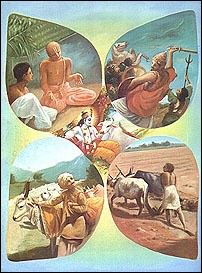
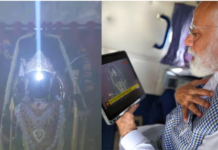

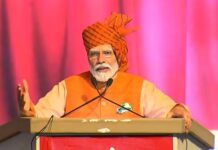
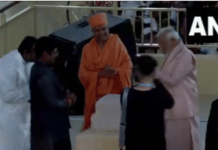
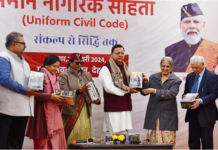
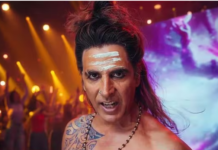




I do not think there is any thing to worry .if there is no discrimination going on,on the basis of caste.Then Law abiding people do not need to worry. It is a step for the better society.Please inform me if there can be problems.For me every one is the same It may be white or black , Brahmin or shudra.